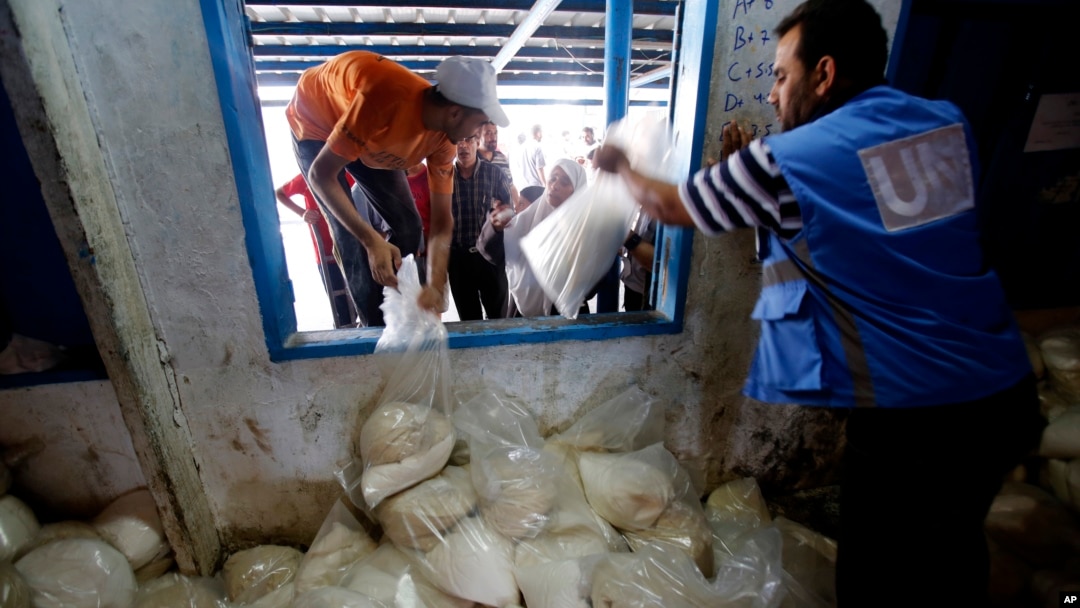A fragile, 72-hour cease-fire in the Gaza Strip held for a second day on Wednesday, as Israel and Hamas delegates prepare for talks in Cairo aimed at extending the truce.
Egypt's intelligence chief met a Palestinian delegation in Cairo, the state news agency MENA said, a day after he conferred with Israeli representatives. The Palestinian team, led by an official from Western-backed President Mahmoud Abbas' Fatah party, includes envoys from Hamas and the Islamic Jihad group.
“The indirect talks between the Palestinians and Israelis are moving forward,” one Egyptian official said, making clear that the opposing sides were not meeting face to face. “It is still too early to talk about outcomes but we are optimistic.”
Egyptian and Palestinian sources said they expected later on Wednesday an initial response by Israel to Palestinian demands, which it has so far shown no sign of accepting.
The 72-hour cease-fire, which began early Tuesday, is the longest pause yet in the month of fighting that has killed more than 1,800 Palestinians, mostly civilians. Sixty-seven Israelis, including three civilians, have been killed.
Concessions necessary
Ahead of the Egyptian-brokered talks, U.S. Secretary of State John Kerry told British media that both sides need to make concessions.
Kerry said the U.S. supports giving more freedom to Palestinians in Gaza. But, he warned, this "must come with a greater responsibility towards Israel, which means giving up rockets," thousands of which Hamas has launched into Israel in the past few weeks.
Hamas has been pushing for Israel to end the blockade that has strangled Gaza's economy and prevented Palestinians from leaving the crowded, impoverished enclave.
However, Hamas, which seized the Gaza Strip from forces loyal to Palestinian Authority President Mahmoud Abbas in 2007, has ruled out giving up its weapons.
Israel said it is only willing to loosen its restrictions on Gaza if it receives assurances that Hamas will not be able to use that freedom to import rockets or other weapons.
“For Israel the most important issue is the issue of demilitarization. We must prevent Hamas from rearming, we must demilitarize the Gaza Strip,” Mark Regev, a spokesman for Prime Minister Benjamin Netanyahu, told Reuters television.
Red Cross visit
The President of the International Committee of the Red Cross Peter Maurer visited an Israeli receiving treatment in hospital on Wednesday, before heading to the occupied West Bank city of Ramallah to meet Palestinian President Mahmoud Abbas.
Mauer visited Natan Meoray, an Israeli teenager receiving treatment in Barzilai hospital from wounds sustained from a rocket launched from the Gaza Strip.
Mauer said that in every conflict, young and innocent people are the ones most affected.
“I visit a lot of hospitals and medical facilities on this and the other side of front lines all over the world and in all those hospitals you see same innocent victims who suffer, same parents - I am not going to make comparisons from one place to another place,” Mauer said from the Israeli southern city of Ashkelon.
He later headed to the West Bank city of Ramallah, the seat of the Palestinian Authority, where he met Abbas.
Maurer visited the Gaza Strip on Tuesday, going to Shifa hospital, the main hospital in Gaza City that has been treating thousands of wounded civilians.
Tunnels destroyed
The Israeli army on Tuesday pulled its ground forces out of Gaza, saying it has successfully destroyed all of the 32 known tunnels Hamas has used to carry out cross-border attacks.
In Gaza, where about a half-million people have been displaced by a month of bloodshed, residents took advantage of the calm to visit shattered homes and stores, looking to salvage whatever is left of their lives. Many neighborhoods are unrecognizable piles of ruins.
Meanwhile, many Israelis are conflicted about the outcome of Israel's assault on Gaza. A poll by Haaretz newspaper on Wednesday suggested 51 percent of Israelis think neither Israel nor Hamas has won the conflict.
In New York, Jordan has circulated a Security Council resolution calling for a permanent cease-fire, lifting Israel's blockade of Gaza, and a global effort to rebuild the area.
Besides the loss of life, the war has cost both sides economically. Gaza faces a massive $6-billion price tag to rebuild devastated infrastructure. Israel has lost hundreds of millions of dollars in tourism and other sectors and fears cuts in overall economic growth this year as well.
Palestinian officials said a donor conference to raise funds for Gaza's reconstruction would be held in Oslo next month.
Also Wednesday, a delegation of Arab foreign ministers, including those of Egypt and Jordan, will visit Gaza "soon" in a show of support for Palestinians, Arab League chief Nabil al-Arabi told the French news Agency AFP.
The ministers will also assess reconstruction needs in the battered enclave after a nearly month-long war between Israel and Hamas, Arabi said.
Some information for this report provided by Reuters, AFP and AP.


